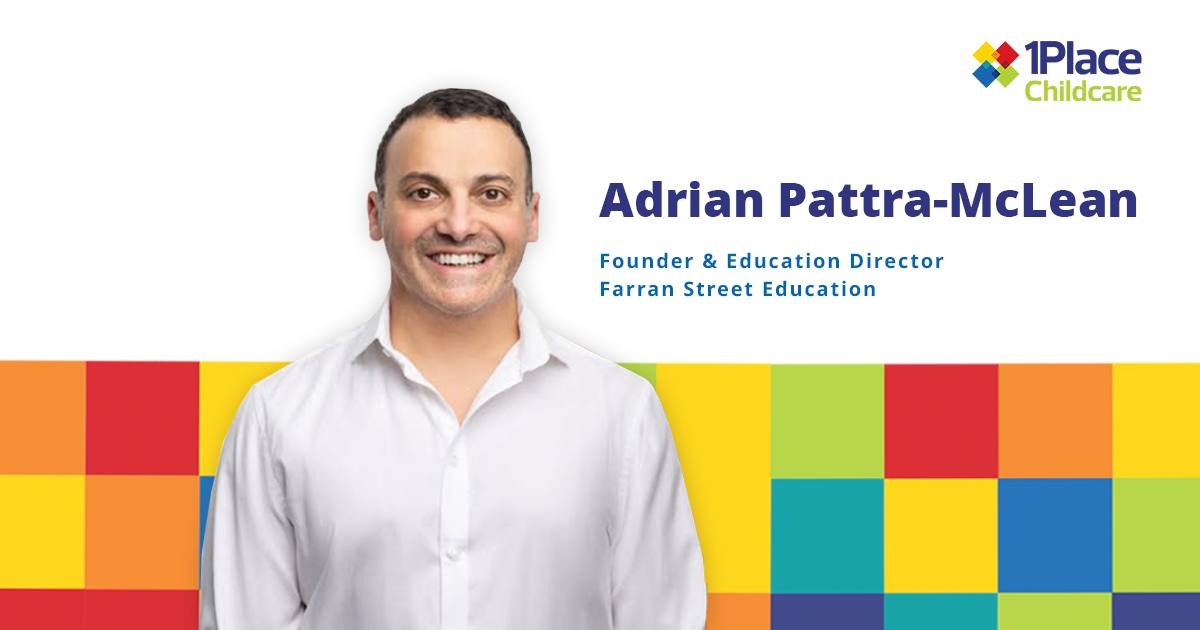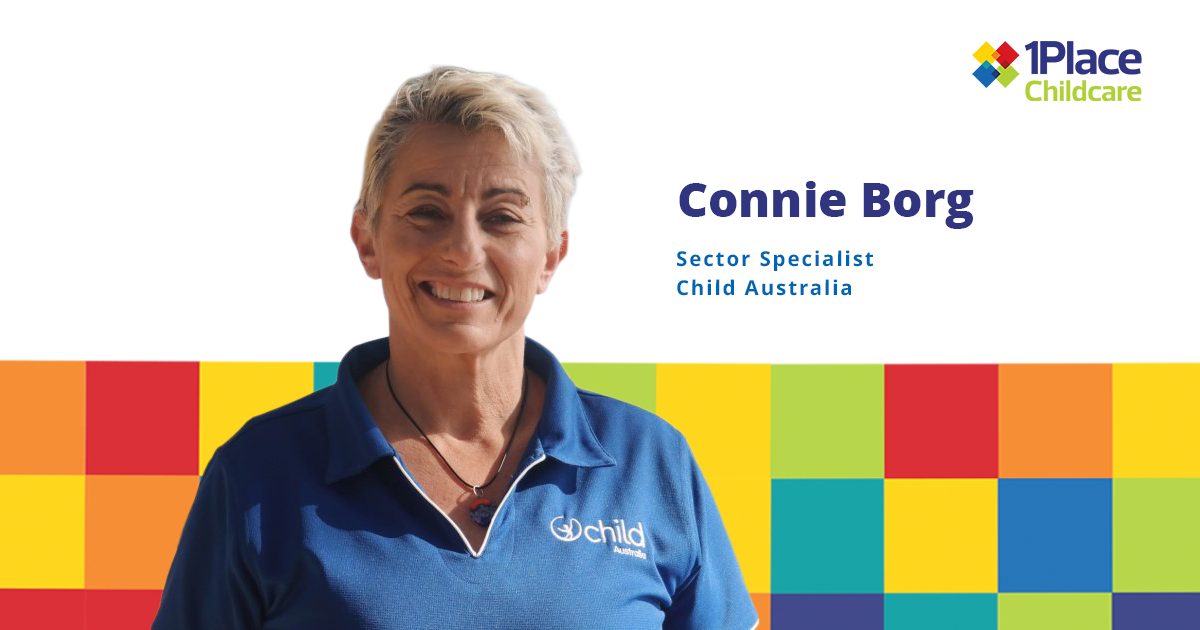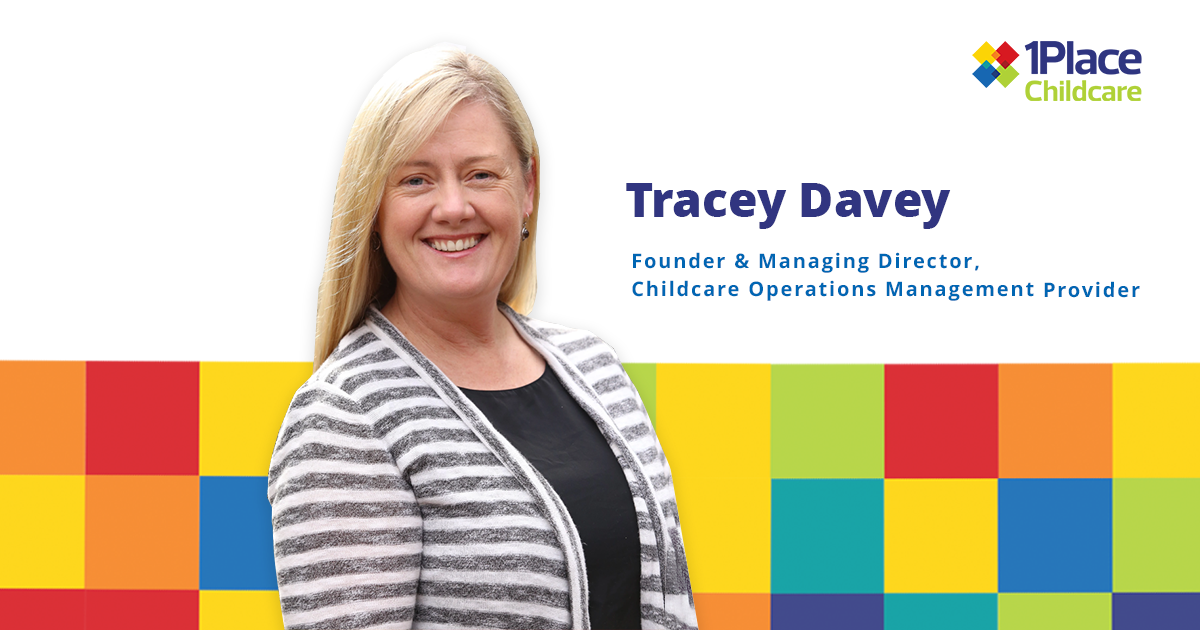
We recently sat down with Adrian Pattra-McLean, founder of Farran Street Education and one of Australia’s leading specialists in early childhood leadership development, to discuss why traditional leadership approaches are causing burnout—and what needs to change.
With a Bachelor of Education from UTS and a Master in Educational Psychology from the University of Sydney, Adrian has over 20 years of experience working with thousands of organisations across Australia and New Zealand, including CSIRO, YMCA, and Mission Australia. His service to the community has been recognised with a Commendation from the Order of Australia association.
Can you tell us a bit about yourself and how you came to focus on leadership in early childhood education?
I come from a long line of educators. My granddad was a primary school headmaster in Poland. Both my parents were educators before they went on to other careers. And now it looks like I’m an educator as well.
It all started 30 years ago when we converted my grandparents’ house into a childcare centre. I remember growing up—it was my mum’s childhood home and I went there as a grandchild. It was my grandparents’ house in Lane Cove and we converted it into a small childcare centre.
I finished my degrees in education and educational psychology, worked for a law firm for a little while, and then started the consulting. Really what we do today is we work with leadership teams. That’s our aim, because in our sector, leadership teams are fairly new.
Thirty years ago, you had a small childcare centre, you had one director who would just bark orders at everyone and she was able to manage the team quite effectively. And now we have these large centres with a flexible workforce where people only work two or three days. We’ve got 50 staff sometimes and the management structure really has to change. We need a strong, coherent leadership team and that’s what we spend most of our time working with.
We work with services all around Australia to help them build a strong leadership team that shows solidarity to each other, where they’ve got a common goal and common objectives.
You’ve talked about the “open door policy” being a major contributor to burnout. Can you explain that?
Yeah, leaders have always been told to have an open door policy and the leaders in our sector are so collaborative. They’ve got so much warmth and love. They want to be available for their staff. But it’s a bit of a double-edged sword because always being available for your staff causes burnout.
There’s some great research by Adam Grant, who looks at givers and takers. So traditionally, childcare managers are givers. They give their time, they give their energy, and they’ve got this open door policy where they’re free to give their advice, their time, their attention to anyone who walks past the door.
What he found is the people who lose are the givers who give all the time because they get burnt out. The people in the middle are the takers, but the people who win are the givers who chunk their giving time.
I’m going to give you my undivided attention on Wednesday between 9:00 and 10:00. You’ve got all of my attention and I’ll give you anything that you need between 9:00 and 10:00. And then after 10 I’m going to recharge and do my work until 12 when I’m going to give my effort and give my time to somebody else.
So what’s happening with the open door policy is you’re giving everyone 50% of your attention while you’re doing your work. This split attention makes it really difficult for people to maintain their well-being.
I think it works on both sides. It works for the leader because they don’t burn out. And it works for the nominated supervisor or the manager because they get undivided attention.
How should leaders be thinking about availability and their actual role?
I think it’s around leaders recognising that their job is not to always be available. That’s not their job. Their job is to coach and guide and mentor their staff, and that can be done at specific times during the day. You’re always going to be available for emergencies, but their job is to scaffold the learning for their leaders, and that doesn’t need to be done at any time during the day. It needs to be done at specific increments.
I think the other thing we need to get away from is this idea of work-life balance. Work-life balance means that work degrades your mental health and life—i.e., the weekend—improves your mental health. Well, that’s a very old way of looking at things.
These days we want work and life to both support positive mental health. You know, it shouldn’t be a balancing act. One shouldn’t drag us down and the other have to cater for it. We want all things in our life to promote positive well-being.
You talk about three levels in early childhood organisations: Doers, Coordinators, and Thinkers. Can you explain that framework?
Yeah, I think one of the big issues is understanding the difference between the thinkers, the coordinators and the doers.
The doers are the people who are doing the job. They’re educating and caring for children. They’re mopping floors, they’re running group times, they’re programming, they’re building relationships with families. They’re the educators.
The coordinators are the room leaders. They’re the ones who are delegating, giving feedback, coaching, mentoring. They’re your coordinators and your nominated supervisors.
Your managers should be the thinkers. You know, they’re the ones who are thinking strategically, doing the risk management.
There’s this great story about the captain of a cruise ship. He gets a phone call saying the engines have blown in the cruise ship. So the captain says no problem, I’ll come down and fix the engine. So he goes down, fixes engine number three. Who’s steering the boat? The boat’s still running. No one is steering the boat. The captain’s become a doer.
A lot of our managers love being doers because that’s how they were promoted to the role in the first place, and they think they’re being productive when they’re being a doer. But when you’re being a doer, no one’s doing the thinking. Your educators can’t do the thinking. Your room leaders can’t do the thinking. You’re the only one doing the thinking.
What about when leaders think helping on the floor is being supportive? You shared a powerful story about this.
You know, if I’m managing a service of 200 places and I just love being on the floor doing a group time, well, seven children are getting my expertise, but 30 educators and 190 children are missing out.
I asked an educator the other day, what do you expect from your manager? And she said I love it when my manager comes in and changes nappies. I said OK, you love it when they come in and help you.
Well, your manager’s job is actually to do recruitment—to do recruitment so well that you’re never left short staffed and she never hires a dud. So if you had to look at how she spends her time, would you prefer that she’s a doer and comes in and changes nappies and helps you out? Or do you prefer she sits in an office and does recruitment so well that you’re never short staffed and every time she hires someone for your room, they’re a high performer and they’re never a dud?
Which would you prefer, changing nappies or recruitment? And every time the educator says I’d prefer her to get recruitment right.
So it is around expectations in roles. What do educators expect from their managers and what do managers expect from their educators, because what we see as support is different for people. That educator thought the manager changing nappies as support, whereas when it’s explained to them, they’re like, OK, actually there’s a different level of support that I’d find more valuable.
How should we be thinking about what leaders should actually be doing?
I think it’s recognising that leaders are not great educators, that leaders are great people managers. If you’re a great leader and you can manage your team, all the children are going to be safe and all the children are going to be cared for. But if you get promoted to a leadership role and you still focus on looking after the children, then a whole lot of educators are missing out and a whole lot of children are missing out.
It’s really shifting your focus from being a great educator and growing into a great leader. My job as a great leader is not to look after the children. That’s not my job. It’s not even to look after the educators. It’s to look after my leadership team.
If I can look after my leadership team, they can look after their educators and the educators can look after their children, because I can only look after so many children. But if you look after your leadership team, suddenly 30 educators and 200 children benefit from your wisdom.
You’ve identified something striking about how early childhood education approaches leadership development. What’s the problem?
We’re the only sector where we train people after they’re promoted. No other sector does that. Every other sector you get trained before you get promoted.
Could you imagine if you’re having a hip operation and you’re lying on the operating table and you say to the surgeon, oh, how many times have you done this? And he’s like, oh, I’m just learning on the job. And you’re like, oh, where’s the other guy who’s teaching you? He’s like, he’s not here. I’m just trial and error mate. You’d get up, you’d walk off. You’d be like, I’m done. My hip’s not that bad.
We’re the only sector where we expect people to learn on the job and learning on the job is code for trial and error. The person who’s training them has already left and we’re like, oh, just learn on the job. But actually what they’re saying is learn by trial and error. And that is a great way to cause someone to burn out and to cause too much anxiety in their role.
Why does this “trial and error” approach cause so many leaders to fail?
That’s why we get so many people fail early on, because we don’t train them for the role and that’s why they become doers, because that’s what they’re great at. They’re like, Oh my God, I have no idea what to do as a thinker. So I’m just going to keep doing what I do as a doer and hopefully I’ll do it really well and that will see me as a success in my role where it doesn’t.
I think if you look at the burnout research, it would probably come under lack of management support. That would be one of the evidence-based things for burnout. Lack of competency really doesn’t come into the research when you look at burnout, but lack of management support definitely does.
So that is definitely what would create burnout when you go into that role and then the person who’s supposed to train you disappears or has left. It’s got to be the training and the learning that comes before the promotion.
Looking back on your career working with early childhood leaders, do you have any regrets?
No, no regrets. I think what you see is you see educators walk into professional development with a long face and they’re like, Oh my God, here we go again. You know, I’ve just worked all day and as the professional development starts, as the learning starts, you see the light bulbs go off and they’re like, Oh my God, this is actually going to make my life easier.
They actually realise, OK, well, if I actually improve my practices, then my job becomes easier. There’s less conflict, there’s less attrition, there’s less turnover, and I can do my job better and I can bring out the best in the people that I work with. So no, I don’t think I’ve got any regrets.
Especially when you see people 10 years later and they’re like, oh, you know what you spoke about, I’ve been using that and it’s amazing. And now I get junior leaders coming through to my workshops and they’re like, I know why my boss is such a great leader because she did your workshop 15 years ago. So it’s nice. Now we have another second and third generation of leaders coming through.
What’s your final message to early childhood leaders reading this?
Great leaders are not great educators—they’re great people managers. Your job as a leader is to look after your leadership team. If you can look after your leadership team, they can look after their educators, and the educators can look after the children. Because you can only look after so many children. But if you look after your leadership team, suddenly 30 educators and 200 children benefit from your wisdom.
Download the Leadership Transformation Toolkit featuring Adrian’s frameworks and reflection questions to help you apply these principles to your leadership journey.




